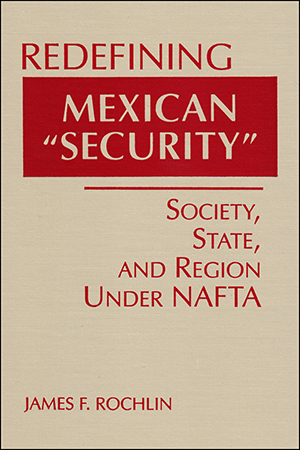
- 1997/217 pages
Redefining Mexican "Security":
Society, State, and Region Under NAFTA
Hardcover: $52.00
ISBN: 978-1-55587-569-5
This pioneering effort to conceptualize unforeseen—and nontraditional—security issues in Mexico confronts what went unaddressed in virtually the entire debate surrounding the NAFTA negotiations: the process of redefining security in Mexico within the context of increased economic integration with the U.S. and Canada.
Grappling with the question of what "security" means in the Post-Cold War era, Rochlin discusses the economic dimensions of Mexican security concerns, the role of indigenous peoples, the evolution of democracy, military-civilian relations and human rights, feminist perspectives, environmental issues, and narcotrafficking, all within a historical context. His practical analysis—drawing heavily on a critical theory perspective, but borrowing as well from postmodernism and classical realism—is also an important contribution to the study of conflict resolution.







